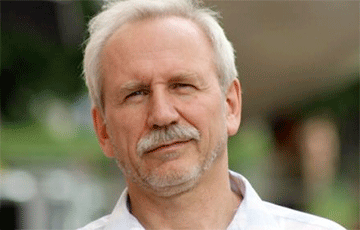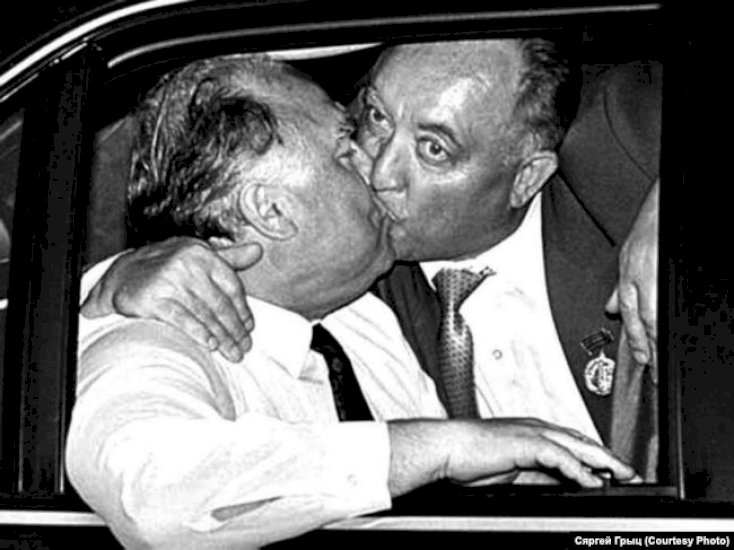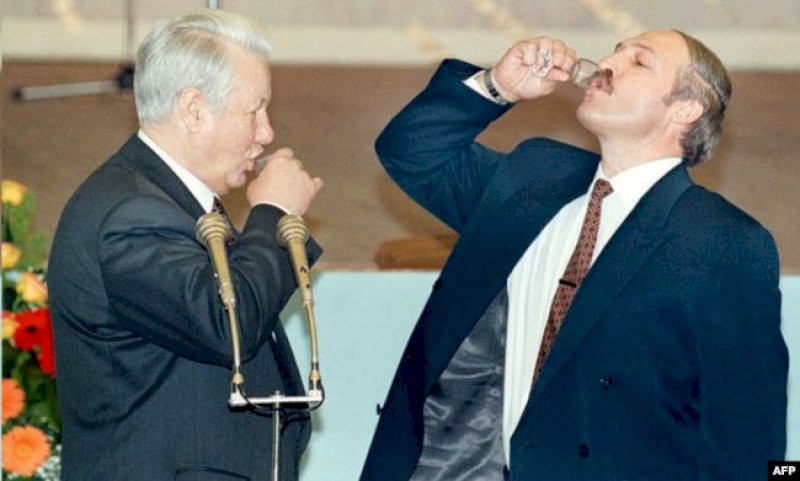The Story How Lukashenka Longed For The Cap of The Monomach And What Happened Later
29- Valery Karbalevich
- 17.07.2019, 13:29
- 46,092

Everything leaves its trace.
The current Belarusian-Russian controversy surrounding the prospects of integration and the "union treaty" does not look completely clear even to people who are interested in politics. Where did this agreement on the "union state" of twenty years ago come from? Why is Moscow now clinging to it, forcing the official Minsk to implement it?
Indeed, it is hard to understand without knowing the whole background, the huge evolution in the relations between Belarus and Russia, which took place during 25 years of Lukashenka's rule.
I'd like to note at once that Aliaksandr Lukashenka was not an initiator of the integration policy with Russia. It was carried out by Vyachyslau Kebich's team as soon as Belarus gained independence in 1991.
In the opinion of the Belarusian ruling elite, Russian-centrism is a complex of national, state and political inferiority, post-colonial syndrome, a sign indicating the lack of readiness of the society and the ruling class to take responsibility for their destiny, confidence that Moscow can be a saviour.

Attempting to the Cap of the Monomach
When Lukashenka came to power, he just pursued this policy line. But soon the campaign called "Belarusian-Russian integration" revealed one weighty subtext and a strong impetus.
Since 1995, Lukashenka has had a plan and an ardent desire to become the president of the Belarusian-Russian state. His white whale was to conquer the Kremlin throne, to get the Cap of the Monomach. The foreign and partially domestic policy of Belarus was largely devoted to the implementation of this rather adventurous and overambitious idea.
Lukashenka was ready to exchange: the sovereignty of his state for the highest post in the Kremlin. "Who does need sovereignty with a poor nation?" he wondered. (A. Lukashenka's speech on Belarusian TV, December 27, 1998).
There were many such statements at that time:
"For me, Belarus is an ancient story! (Ogonek, No. 43, 1996);
"Don't be afraid, scared by the federation or confederation. Maybe we will turn to the Soviet Union and even to its tougher form" (Belorusskaya Molodezhnaya, March 14, 1998);
"It may be a single state, a federation, or a confederation. We should come to this" (Narodnaya Volya, June 19, 1997);
"Well, let's say, there would be the head of this society. Do you think that Lukashenka had no chances to be a leader? (Sovershenno Secretno, No.9, 1997).

Lukashenka was determined to speed up the process of unification to be ready for the Russian presidential elections in 1996. After negotiations with Russian President Boris Yeltsin in Moscow, he announced on BT TV channel that they had agreed upon "the creation of a union state", supranational bodies (in particular, the government), and their decisions would be binding. But Yeltsin did not need this competitor, and the next day he denied the statement of his Belarusian ally, and not in a very polite form: "There is no issue about the creation of a single state with Belarus. Just somebody misspoke."
The Treaty on the Creation of a "Union State
Why was the treaty on the "Union State" signed on 8 December 1999? After all, presidential elections were to be held in Russia in 2000. And Lukashenka rushed to catch the last carriage of the Russian election campaign. Interestingly, he tried to participate in this campaign being the president of Belarus. It was an insurance against failure. The option of integration, developed by Lukashenka's team, provided for a federation, within which the statehood of Belarus turned into a fiction. Moreover, he tried to perform this project secretly, behind the back of the society, without any discussion, even in the rubber-stamping parliament.
However, Yeltsin refused this option. The historical paradox is that then the sovereignty of Belarus was saved by the imperial, great-powerful Russian elite.
Lukashenka was outraged: "Why did Russia, which has much more population and territory than Belarus, suddenly become afraid of this process? (Sovetskaya Belarus, July 3, 1999). "It's a red meat", he persuaded the Russian political elite to join Belarus (Izvestiya, October 28, 1999).
The agreement of December 8th turned to be considerably cut in comparison with the original Belarusian version.
Lukashenka called it a "joke".
Integration under Putin
But Lukashenka's great plans collapsed on December 31, 1999, when Yeltsin announced his resignation and Putin's coming to power in Russia. Then Lukashenka realised that the Cap of the Monomach had found another head and the gates to the Kremlin were closed. And it greatly cooled the integration fervour of the official Minsk.
Very soon it became clear that Lukashenka was not going to unite. The propaganda of the Belarusian-Russian unity significantly dropped among the state-owned media.
The model of integration, which appeared after Putin's coming to power, was quite acceptable for the Belarusian leadership and society. Belarus received large-scale Russian subsidies, political, military and diplomatic support from Moscow, while the ruling regime was free to conduct domestic, economic and even foreign policy.
The year 2014 became a certain borderline in bilateral relations: Russia annexed Crimea, Donbas and there was a conflict about Ukraine. Since then, Belarus' foreign policy has become more independent, and Minsk has begun to distance itself from Russia, although the country's economic dependence on Russia has not diminished. It created such a geopolitical split, which could not exist for a long time. Sooner or later, the conflict should have escalated. And it is happening now.
Russia suddenly found the document of 1999, blew the dust off it and said: let's integrate. The Kremlin took off the wall the very gun in the form of the "union treaty", which Lukashenka himself put on that wall 20 years ago. And Lukashenka cannot give up negotiations on "greater integration." After all, Moscow will quickly remind who initiated the treaty.
Everything leaves its trace. This is the gift from Russia to the 25th anniversary of Lukashenka's rule. But I think he hardly feels excited.
Valery Karbalevich, Radio Svaboda








